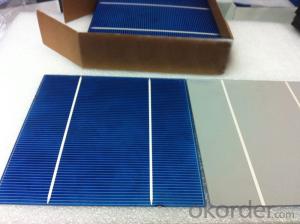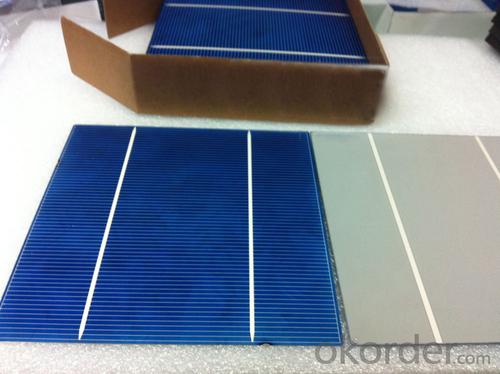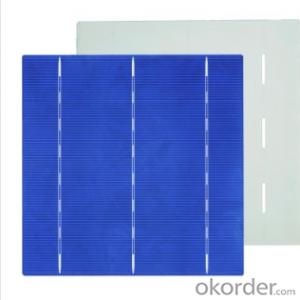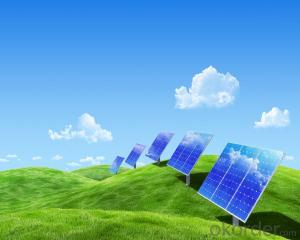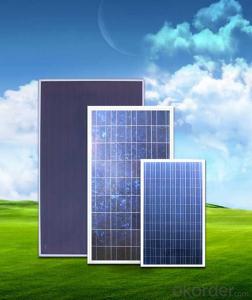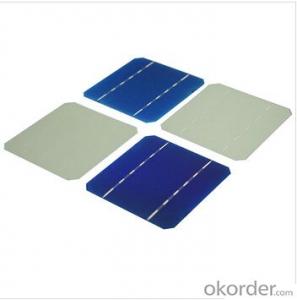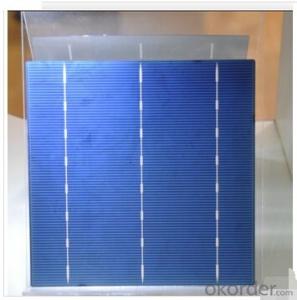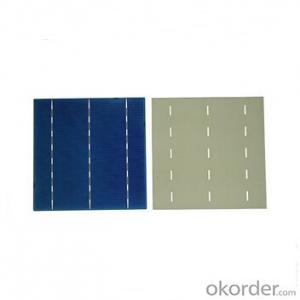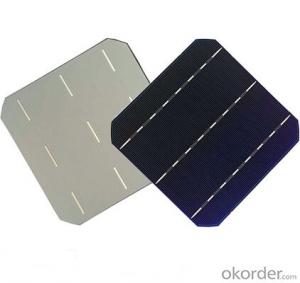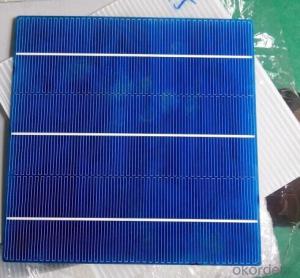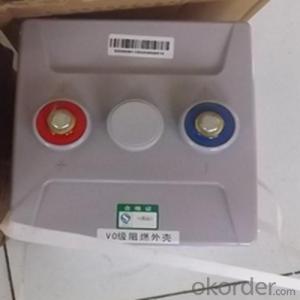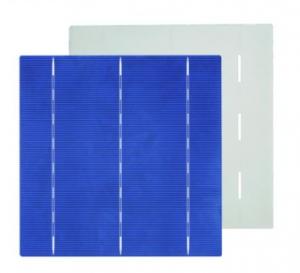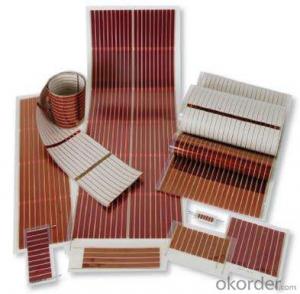Dye Sensitized Solar Cells - High Quality Poly-18% Effy Solar Cells
- Loading Port:
- China Main Port
- Payment Terms:
- TT OR LC
- Min Order Qty:
- -
- Supply Capability:
- -
OKorder Service Pledge
Quality Product, Order Online Tracking, Timely Delivery
OKorder Financial Service
Credit Rating, Credit Services, Credit Purchasing
You Might Also Like
Specifications
1. High efficiency and High power.
2. Long-term electrical stability.
3. Lowest price and Fastest delivery.
4. Good quality.
Advantage:
1. High efficiency and High power.
2. Long-term electrical stability.
3. Lowest price and Fastest delivery.
4. Good quality and good service.
5.Bulk supply
6. Good Warranty
7.Big Sale
8.Made in Taiwan/Germany etc for high quality
9.More than 35 years on the lifetime.
10 DHL/Fedex/UPS/TNT/EMS etc
11 No anti-dumping tax
- Q: How are solar cells used in spacecraft?
- Solar cells are used in spacecraft to convert sunlight into electricity, providing power to the various systems and instruments on board.
- Q: How do solar cells handle bird droppings or other debris?
- Solar cells can be affected by bird droppings or debris as they can block sunlight from reaching the cells, reducing their efficiency. Regular cleaning and maintenance are essential to ensure optimal performance of solar cells and prevent any potential issues caused by bird droppings or debris.
- Q: What is a thin-film solar cell?
- A thin-film solar cell is a type of solar cell that is made using very thin layers of semiconductor materials. These layers are typically only a few micrometers thick, which makes the solar cell much lighter and more flexible compared to traditional solar cells. Thin-film solar cells are less efficient at converting sunlight into electricity but are more cost-effective and can be used in a wider range of applications.
- Q: Can solar cells be used to power an entire household?
- Yes, solar cells can be used to power an entire household. By installing a sufficient number of solar panels and utilizing battery storage systems, solar cells can generate enough electricity to meet the energy needs of a household. This allows for the reduction or elimination of reliance on the traditional electrical grid, resulting in lower energy costs and a more sustainable and environmentally friendly power source.
- Q: Can the 156x156mm high efficiency single crystal cells assembly function better compared to the traditional one?
- The media already commented a lot on the 156x156mm high efficiency single crystal cells assembly, which make me wonderabout its real function.
- Q: Can solar cells be used for off-grid applications?
- Yes, solar cells can indeed be used for off-grid applications. Solar cells convert sunlight into electricity, which can be stored in batteries for later use. This capability makes them ideal for powering off-grid applications such as remote cabins, RVs, and even small electronic devices like calculators and outdoor lighting. By harnessing the power of the sun, solar cells offer a sustainable and reliable energy source for off-grid situations.
- Q: How do solar cells impact wildlife?
- Solar cells have a minimal impact on wildlife compared to traditional energy sources. While the initial construction of solar farms may disrupt habitats, once operational, they create no direct pollution, noise, or emissions that harm wildlife. Additionally, solar panels can be installed in areas that are not suitable for agriculture, preserving natural habitats and biodiversity.
- Q: What is the role of bypass diodes in solar cell arrays?
- The role of bypass diodes in solar cell arrays is to minimize the impact of shading or partial shading on the overall performance of the array. They provide an alternative path for the current to flow, allowing the unaffected cells to continue producing electricity while the shaded cells are bypassed. This prevents the shaded cells from acting as a resistor and reduces the risk of hotspots or damage to the cells.
- Q: Are solar cells affected by temperature changes?
- Yes, solar cells are indeed affected by temperature changes. As the temperature increases, the efficiency of solar cells decreases. This is because higher temperatures can lead to an increase in resistance, which reduces the amount of current that can be generated. Additionally, excessive heat can cause thermal stress and damage to the materials of the solar cells, affecting their overall performance. Therefore, it is important to consider temperature variations when designing and operating solar energy systems.
- Q: Can solar cells be used for powering agricultural equipment?
- Yes, solar cells can be used for powering agricultural equipment. Solar panels can generate electricity from sunlight, which can then be used to power various agricultural equipment such as irrigation systems, water pumps, and electric fences. This can provide a sustainable and environmentally friendly alternative to traditional power sources, especially in remote or off-grid farming locations.
Send your message to us
Dye Sensitized Solar Cells - High Quality Poly-18% Effy Solar Cells
- Loading Port:
- China Main Port
- Payment Terms:
- TT OR LC
- Min Order Qty:
- -
- Supply Capability:
- -
OKorder Service Pledge
Quality Product, Order Online Tracking, Timely Delivery
OKorder Financial Service
Credit Rating, Credit Services, Credit Purchasing
Similar products
Hot products
Hot Searches
Related keywords
